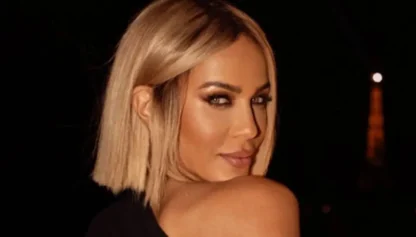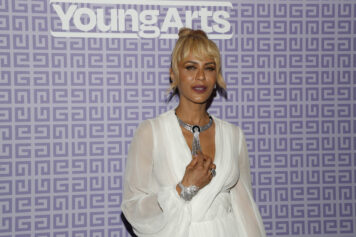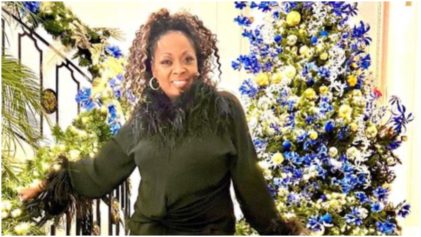It’s as much a cultural challenge as it is an individual one.
African-American women appear to be unmoved by the growing obesity epidemic among their ranks, with little regard to the serious health dangers it poses.
They have the highest obesity rate of any group of Americans, with four out of five black women having a body mass index above 25 percent, the threshold for being overweight or obese, according to the Centers for Disease Control and Prevention.
By comparison, nearly two-thirds of Americans overall are in this category, the CDC said.
But many black women seem to be unaffected by being generally heavier than other Americans.
Calorie-rich, traditional soul food is a staple in the diets of many African-Americans, and curvy black women are embraced positively through slang praising them as “thick” with a “little meat on their bones,” or through songs like the Commodore’s “Brick House” or “Bootylicious” by Destiny’s Child.
The challenge to promote positive healthy living remains on a black community rife with high blood pressure, obesity and other medical issues.
A study by the Kaiser Family Foundation and The Washington Post earlier this year found that 66 percent of overweight black women had high self-esteem, while 41 percent of average-sized or thin white women had high self-esteem.
Still, that doesn’t mean black women have rejected the need to become healthier.
Historically black, all-female Spelman College in Atlanta is disbanding its NCAA teams and devoting those resources to a campus-wide wellness program. In an open letter announcing Spelman’s “wellness revolution,” president Beverly Daniel Tatum cited a campus analysis that found many of Spelman’s 2,100 students already have high blood pressure, Type 2 diabetes or other chronic ailments.
TV personality Star Jones, who underwent open heart surgery in 2010 at age 47 and now urges awareness about heart disease among black women, was met by an overflow crowd earlier this year when she convened a Congressional Black Caucus Foundation panel on black women and obesity.
“We have to get ourselves out of being conditioned to think that using soft words so we don’t hurt peoples’ feelings is doing them any favor,” Jones told Time Magazine. “Curvy, big-boned, hefty, full-figured, fluffy, chubby. Those are all words designed to make people feel better about themselves. That wasn’t helpful to me.”
Jones once embraced being large and fabulous, at 5 feet 5 inches tall and 300 pounds. But all was not well under that exterior as she suffered from extreme fatigue, nausea, lightheadedness, heart palpitations and blurred vision. Jones now advises women to make simple changes such as reducing salt intake, exercising 30 minutes a day, quitting smoking, controlling portion sizes and making nutritious dietary choices.
While First Lady Michelle Obama has encouraged exercise through her “Let’s Move” campaign targeting childhood obesity, the spark for this current interest among black women may have been comments last year by Surgeon General Regina Benjamin, who observed publicly that women must stop allowing concern about their hair to prevent them from exercising.
Some black women visit salons as often as every two weeks, investing several hours and anywhere from $50 to several hundreds of dollars each visit ” activity that, according to the Black Owned Beauty Supply Association, helps fuel a $9 billion black hair care and cosmetics industry.
“I wouldn’t say we use it as an excuse, we use it as a barrier,” Benjamin said. “And that’s not one of the barriers anymore. We’re always going to have problems with balancing our lives, but we could take that one out.”
Actress Nicole Ari Parker understands this dilemma well. Out of personal frustration over maintaining both her workout and her hair, she created “Save Your Do” Gymwrap – a headband that can be wrapped around the hair in a way that minimizes sweat and preserves hairstyles.
“Not just as a black woman, but as a woman, since the beginning of time, beauty has been our responsibility,” Parker said in an interview. Because of that, she said, exercise has become linked with vanity instead of health.
“We’ve turned exercise into a weight-loss regimen,” Parker said. “No. Exercise is about being grateful for the body you have and sustaining the life you have. … Take all the hype out of the exercise and think of it as brushing your teeth.”
It costs her nothing, she said, to walk around an outdoor track with her husband, actor Boris Kodjoe, or run up and down stairs with her headphones.
“One good step breeds another one,” Parker said. “You’re going to have one less margarita, one less scoop of Thanksgiving macaroni … and yet you’re not doing anything fanatical or dramatic.”


